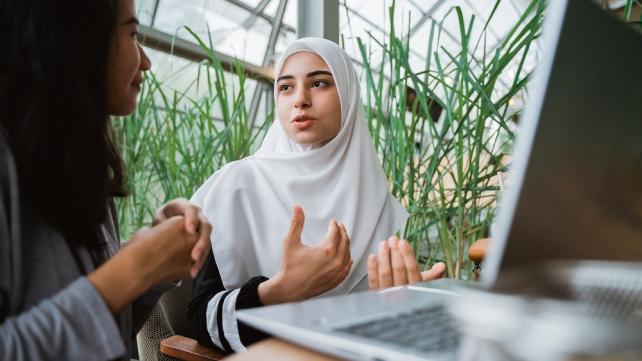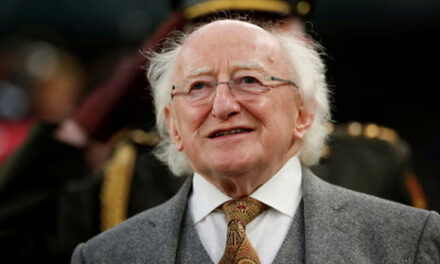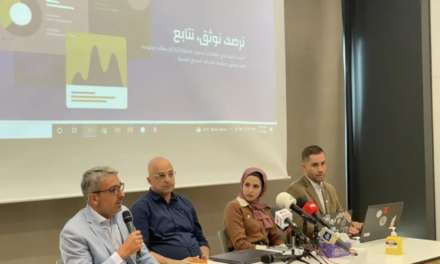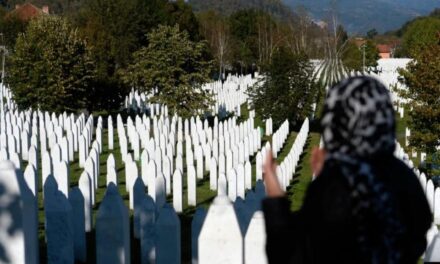Think being part of college MSA is lame? Think again! The MSA can be life-changing. One Muslim couple married over 35 years attribute their union to the MSA. Two pamphlets, the “Five Pillars of Islam” and “What Muslim Believe” started a dialogue. From that dialogue, the young student began to study Islam, at first in an attempt to discredit it. However, once given a Quran, the words and power within it touched the heart with such strength that embracing Islam was the only desired path. This couple has spent over three decades working in and for the Muslim community. The husband and wife are educators, Arabic instructors and the husband is currently the Imam on a large military base.
The MSA has always been a place to strengthen Muslim identity, nurture lifelong relationships and develop Dawa skills. The MSA can take the negatives that plague the Muslim community in the U.S. and Canada like sexism, racism, and Islamophobia and create change in the behavior and the hearts of the people.
“…Indeed, Allāh will not change the condition of a people
until they change what is in themselves…”
(Quran 13: 11)
In some American and Canadian mosques, women’s space is an issue. Some renovate and build new structures that don’t include an adequate area for women to fully participate in Islamic activities in the mosque. Too many don’t have women on the trustee or governance board. There are even some communities that advocate that women refrain from even coming to the Islamic center. None of these practices are keeping with the tradition of Prophet Muhammad, God’s peace and blessings be upon him. His wives and female Companions were all full members of the Muslim community, praying, memorizing the Quran, teaching, doing charitable deeds and acts of worship.
Umm Salamah reported: The Prophet, peace and blessings be upon him, would end prayer with salutations of peace and remain in his place for a while. The Prophet would end prayer and the women would depart to enter their homes before he would depart.
Source: Ṣaḥīḥ al-Bukhārī 812
- In the MSA Muslim women often have a chance to exert their political voice and serve as not only members but officers in the organization. Many MSAs have Hijab awareness campaigns that are beneficial for other Muslims and help remove the “mystique” of this simple piece of cloth. Many of the young women in the MSA are full organizers and participants in the Ramadan activities on campus.
- As future leaders, movers, and shakers, the MSA serves as proving ground for young sisters. This knowledge, experience, teamwork and development of skill sets is beneficial to the Muslim community once these sisters leave college, as they are able to take these skills with them. One need only look at the proliferation of Muslim women not only in politics, media, sports, medicine, business, fashion, publishing etc., but also as founding members and organizers of Islamic, women and community-based organizations.
When a MSA is operating in accordance with Islamic principles it brings young Muslims together in a way that local masjid and Islamic centers simply have not been able to do. Too many Muslims distrust each other’s doctrine or their perception of how it differs simply because the other Muslim is from a certain ethnic group or cultural background.
This dissension that Muslims are warned in the holy Quran to avoid, fuels not only communal disrespect and dismissal but borders on dislike. Many Masjids and Islamic centers deliberately do not support the programs and efforts of other mosques in their area due to racism or nationalism. In most American cities the area mosques are tragically divided on ethnic lines with large populations of one cultural or national group. Sadly, this practice has brought the Muslim community to the same state that Martin Luther King decried for Christians back in the 1950’s when he said, “It is appalling that the most segregated hour of Christian America is eleven o’clock on Sunday morning.”
The MSA however, offers young minds – the future change makers and leaders of the world – to work together outside of the politics of their Masjid, parents or country. In the Psychology Today article “Do we need a common enemy”, social psychologist Daniel Sullivan and other researchers found that a common foe gives people comfort in the face of uncertainty. There is perhaps no more uncertain time for a young adult than starting the college experience. When people perceive that they all have the same obstacle that is somehow keeping them from reaching their full potential, this creates the mindset of connectedness and working together.
One need only look at the life examples of the companions of the Prophet to see examples of how people pulled together to protect each other and further the spread of Islam. Within the MSA the members become companions as they work towards a common goal – getting the college to accommodate the needs of Muslim students on campus like providing a prayer area, a place for Friday prayer, Halal food in the cafeteria and acknowledgement of Islamic celebrations.
“A faithful believer to a faithful believer is like the bricks of a wall, enforcing each other.” While (saying that) the Prophet clasped his hands, by interlacing his fingers.
Sahih al-Bukhari 481
September 11, 2001 was a negative Dawa event, but so was November 4, 1979 which was the Iranian hostage crisis. In fact, 1979 is considered the start of the new wave of Islamic-inspired disruptions around the world – Iran, Afghanistan, Libya, Egypt, Pakistan and in the 80’s even Muslims of the Americas. As these major events took place Americans moved from feelings of indifference or not even noticing that there were Muslims in America, to full out fear and confusion about Islam and Muslims. The MSA afforded a shared discussion and civic space on college campus that opened the door towards understanding. Some MSA also provided a safe space for Muslim students to exist.














